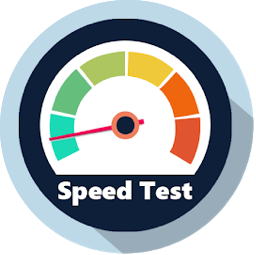
This course explores:
- General social expectations tied to friendship across different developmental ages
- Visual frameworks, teaching scaffolds, and practical strategies to help students understand and engage in relationship development
- The role of metacognition in making and keeping friends
- Tips for managing social anxiety and developing relationships
3.5 hours of training and CE credit available for select professionals. For any special accommodations or assistance with resources email us.
Browse additional friendship & relationship development resources related this online training course.
What’s a Friend, and Do I Really Need Friends?
Tips & Strategies to Make and Keep Friends, Unpack Social Dislikes & Manage Social Anxiety
Replay access through November 30, 2023
Detailed Description
Who should attend
For many children, making and keeping a friend is as easy as learning to hop, skip, and jump. However, as we age, friendships become more layered and complicated. For some students, peer-based friendships, even as younger children, are something that’s never made sense to them. Based on our work with older students and mature adults, we’ve learned how important relationship development and maintenance is to one’s mental health and sense of belonging in any community, around the world. In this online training, we’ll seek to make implicit information about friendship explicit using visual frameworks, teaching scaffolds, and exploring practical strategies to help our students engage in relationship development in a manner that meets their own goals.
We’ll begin with concepts and strategies to help social emotional learners find their motivation. We’ll define and explore the value of we-thinking vs. me-thinking, related hidden social expectations, as well as describe a visual and language-based tool to help students define what friendliness looks like to them. To this end, we’ll also explore nuanced dynamics in different types of friendships through the use of the Friendship Pyramid and demonstrate how this dovetails with the Pyramid of Dislike.
Frankly, the concept of “friend” is complicated, and friendships are living organisms that take work to maintain. Once you have a friend, there is no guarantee you’ll keep that friend. Friends come and go within our lives, and even if we are friends on social media, we may not be friends in our face-to-face lives. To further muddy the waters, one person can at times be a friend and at other times be someone we want to avoid.
Friendships can provide enjoyment and satisfaction, but they can also make us feel angry, socially anxious, and/or sad. We’ll provide an overview and tips to help individuals develop awareness of possible social anxiety and learn strategies to navigate through it.
In this online training, we’ll share information regarding:
- General social expectations tied to friendship across different developmental ages
- How friendships with teachers and other adults are different from friendships with peers
- The role of metacognition in making and keeping friends
- An overview of different types of “friends”: The Friendship Pyramid
- Relationships are not always friendly: The Pyramid of Dislike
- Feelings are at the core of friendship: Introducing the Friendliness Detector
- Am I really your friend?
- How do I figure out who I might want to be friends with?
- Step-by-step scaffolding for teaching “approachability” using the 4 Steps of Face-to-Face Communication
- Social Feedback Loop: Detecting when it’s a good time vs. a not-so-good time to approach others in a friendly manner
- Helping students identify their strengths, differences, and/or challenges when it comes to making friends
- Our inner voices (e.g., inner critic and inner coach) have something to say to us: When is it a good idea to listen?
- Tips for managing through one’s social anxiety
Who Should Attend
Components of the Social Thinking Methodology is used by a wide variety of professionals; including speech-language pathologists, special and general education teachers, social workers, counselors, clinical and school psychologists, occupational therapists, behavior specialists, and school administrators to name a few. Strategies and tools are also used by family members and caregivers across settings.
Testimonials
Attendees Have Rave Reviews About The Course
Almost 1,000 speech-language pathologists, educators, parents, and other interventionists from around the world have watched this brand new course, taught by thought leaders and expert practitioners, Michelle Garcia Winner, Dr. Pamela Crooke, and members of the Social Thinking Training & Speakers’ Collaborative. Attendees have rave reviews:

Learning Objectives and Agenda
Objectives
Participants will be able to:
- Describe why “we-thinking” is an essential ingredient when making and sustaining peer-based friends
- Describe the six levels on the Friendship Pyramid
- Describe the purpose of using the Pyramid of Dislike when teaching about friendship
- Explain how a student’s inner voice can promote or discourage attempts at making friends
Agenda
1 hour and 30 minutes
- General social expectations tied to friendship across different developmental ages
- How friendships with teachers and other adults are different from friendships with peers
- The role of metacognition in making and keeping friends
- An overview of different types of “friends”: The Friendship Pyramid
- Relationships are not always friendly: The Pyramid of Dislike
- Feelings are at the core of friendship: introducing The Friendliness Detector
- How do I figure out who I might want to be friends with?
10-minute Break
1 hour and 30 minutes
- Step-by-step scaffolding for teaching “approachability” using the 4 Steps of Face-to-Face Communication
- Social Feedback Loop: Detecting when it’s a good time vs. a not-so-good time to approach others in a friendly manner
- Helping the students identify their strengths differences, and/or challenges when it comes to making friends
- Our inner voices (e.g., inner critic and inner coach) have something to say to us: When is it a good idea to listen?
- Tips for managing through one’s social anxiety
30-minutes Previously Recorded Question & Answer session with the speakers
Continuing Education Credit
3.5 hours toward CE credit, if applicable
Click here to see if you can receive CE credit by Profession and by State
We are proud to provide access to continuing education credit for:
- Speech-Language Pathologists
- Educators
- ...and others!
Technical requirements to participate in online training
Streaming compatible browser

The best browser for streaming is Google Chrome. If you are unable to use Chrome, please make sure the version of your browser is the latest and greatest.
Download ChromeHigh-speed internet connection

Make sure you are accessing the online course on a device that is connected to high speed internet—that means your download speed is at least 25Mbps.
Run Internet Speed TestOpen firewall ports

If you are accessing the online course from your school or organization, ask your network administrator if there are any firewall ports that need to be opened.
Learn More






